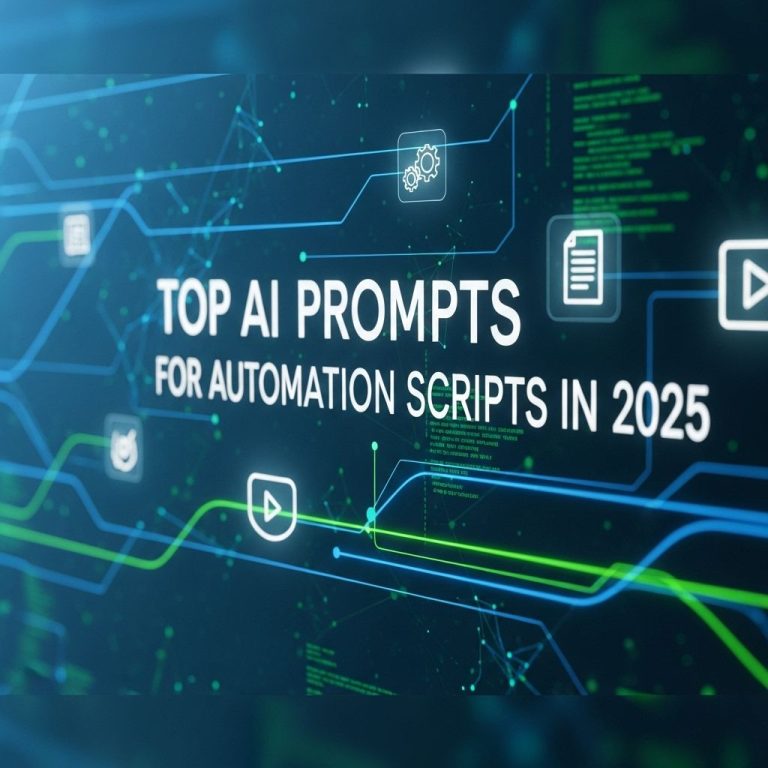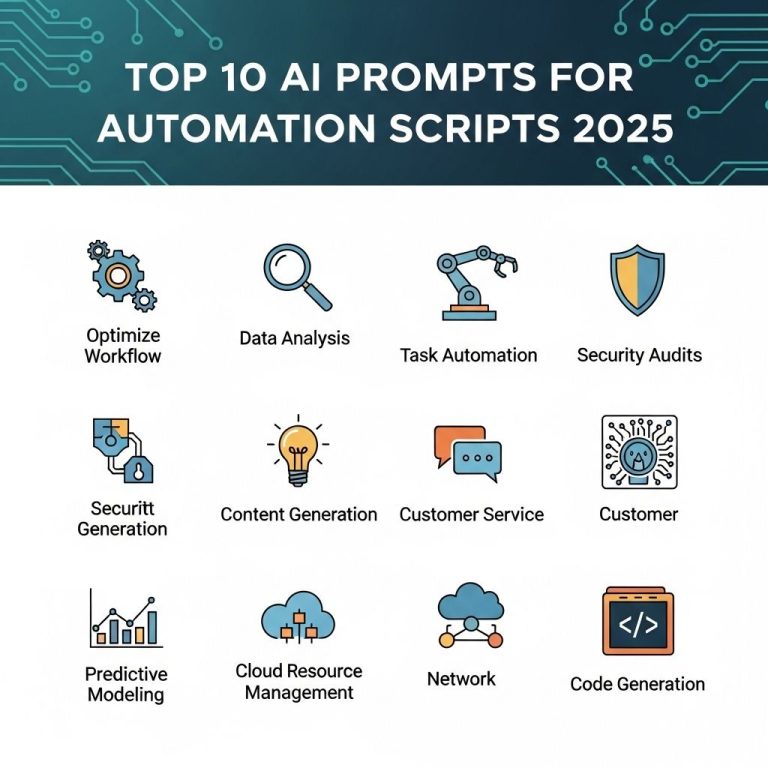In the fast-evolving world of technology, automation has become a cornerstone of efficient software development. The integration of Artificial Intelligence (AI) into the coding ecosystem is transforming how developers approach their workflows, enabling them to focus on more complex tasks while leaving repetitive and time-consuming processes to AI. The right prompts can enhance the efficacy of code automation, allowing developers to optimize their output significantly. In this article, we will explore various AI prompts designed to streamline code automation, providing tech-savvy developers with the tools they need to elevate their coding practices.
Understanding Code Automation
Code automation refers to the practice of using technology to execute repetitive coding tasks without human intervention. This includes generating code snippets, testing applications, and deploying software solutions. Automating these tasks not only reduces errors but also saves time, enabling developers to focus on innovation rather than mundane tasks.
Benefits of Code Automation
- Increased Efficiency: Automating repetitive tasks allows developers to complete projects more quickly.
- Reduced Errors: AI can minimize the likelihood of human error in code writing.
- Cost Saving: Businesses can save on labor costs and increase productivity.
- Improved Consistency: Automated code adheres to predefined standards and formats.
- Scalability: Automation allows easy scaling of processes to handle more extensive projects.
Key AI Prompts for Code Automation
Utilizing AI effectively requires the right prompts that guide the AI in generating useful outputs. Below are some of the most influential prompts that developers can use to streamline their coding tasks:
1. Code Generation Prompts
When generating code, it’s crucial to provide clear and concise prompts. Here are a few examples:
Generate a Python function that calculates the Fibonacci sequence up to n.Create a JavaScript snippet that validates a user’s email address.These prompts help AI understand the desired outcome and produce relevant code automatically.
2. Code Refactoring Prompts
Refactoring improves code quality and maintainability. Use prompts like:
Refactor the following code to improve readability and performance.Optimize this function for better execution time and lower memory usage.These prompts encourage AI to enhance existing code without changing its output.
3. Testing Automation Prompts
Automating tests is critical for ensuring software quality. Effective prompts include:
Create unit tests for the following function using JUnit.Generate test cases for the given API endpoint.By using these prompts, developers can significantly reduce the time spent on testing.
Integrating AI With Existing Tools
Integrating AI prompts with existing development tools can further streamline processes. Here are common tools that can be enhanced with AI:
- Version Control Systems: Automate merges and resolve conflicts.
- Continuous Integration/Continuous Deployment (CI/CD): Enhance deployment pipelines with automated testing and deployment scripts.
- Code Review Tools: Use AI to suggest improvements during peer reviews.
- IDE Extensions: Integrate AI prompts directly into development environments for real-time assistance.
Real-World Applications of AI-Powered Code Automation
AI-powered code automation has found applications across various industries. Here are a few examples:
| Industry | Application | Benefits |
|---|---|---|
| Finance | Automating report generation for compliance. | Faster compliance reporting and reduced human error. |
| Healthcare | Generating code for patient management systems. | Increased efficiency in system updates and maintenance. |
| E-commerce | Automating inventory management scripts. | Better tracking of stock levels and automated reordering. |
Best Practices for Using AI Prompts
To maximize the effectiveness of AI prompts in code automation, consider implementing the following best practices:
- Be specific: Clearly define what you need from the AI to ensure accurate outputs.
- Iterate on prompts: Refine prompts based on the responses received to enhance accuracy.
- Combine prompts: Use a combination of prompts to achieve complex tasks.
- Monitor outputs: Regularly check the quality of the generated code to maintain standards.
- Provide context: When necessary, give the AI background information to produce better results.
The Future of Code Automation with AI
The future of code automation lies in the continuous evolution of AI technologies. With advancements in machine learning and natural language processing, AI capabilities will expand further, allowing for more intricate automation tasks. This includes:
- Smart Code Completion: AI systems are expected to predict the next lines of code based on the context, making coding more intuitive.
- Audit and Compliance Automation: AI will be leveraged to ensure that code adheres to compliance standards effectively.
- Machine Learning Integration: Automating the integration of machine learning models into software applications.
Conclusion
As the landscape of software development continues to change, the importance of code automation through AI becomes ever more prominent. By leveraging effective AI prompts, developers can streamline their coding tasks, enhance productivity, and significantly contribute to the future of technology. Embracing these practices and tools will not only simplify the development process but will also empower developers to focus on innovation and creativity in their work.
FAQ
What are AI prompts for code automation?
AI prompts are pre-defined instructions or queries designed to guide artificial intelligence in generating code, automating tasks, or streamlining development processes.
How can AI prompts improve coding efficiency?
AI prompts can enhance coding efficiency by providing quick solutions, automating repetitive tasks, and suggesting code snippets, thereby reducing the time developers spend on mundane coding activities.
What types of tasks can be automated with AI prompts?
AI prompts can automate a variety of coding tasks such as code generation, debugging, refactoring, testing, and even documentation, making the development process faster and more efficient.
Are there specific AI tools for code automation?
Yes, there are several AI tools available for code automation, including GitHub Copilot, TabNine, and OpenAI Codex, which utilize AI prompts to assist developers in writing code.
Can beginners use AI prompts for coding?
Absolutely! Beginners can benefit from AI prompts as they provide guidance and suggestions, helping them learn coding practices and improve their skills while working on projects.
How do I create effective AI prompts for coding?
To create effective AI prompts, be specific about the task, use clear language, and provide context or examples to help the AI understand the desired output and generate relevant code.




